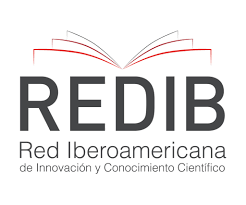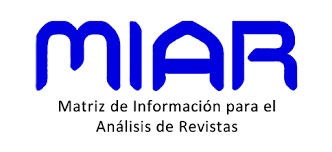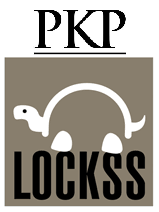Methodology and Research: Is it possible to overcome Scientific Reductionism?
DOI:
https://doi.org/10.51743/cpe.392Keywords:
innovation, quality, investigation, Humanities, evaluationAbstract
The prevailing scientism has forced the introduction of quantitative criteria clearly contrary to the idiosyncrasies of the Humanities and humanists. This paper proposes an in-depth rethinking of these instruments, since their application has only produced a very considerable deterioration in the quality of research in Humanities. But there is not only criticism of quantitative methods that seek to turn the Humanities into what they are not, that is, substitutes for the physical and experimental sciences, but also of other methods such as evaluation by peers. The criticism focuses on highlighting the deeply ideological bias that this procedure has in the field of Humanities. Because, despite having a huge number of defenders, it is argued that, in reality, it has led to a flat and repetitive investigation that does not dare to raise innovative and bold topics or perspectives for new research. Ultimately, it implies a reduction of freedom that leads researchers to self-censor to accommodate themselves to those rigid molds imposed by peer evaluation, since there is a very solidified power structure in the university world, based on a concrete and determined cultural and ideological hegemony.
Downloads
Global Statistics ℹ️
|
446
Views
|
455
Downloads
|
|
901
Total
|
|
References
Agencia para la Calidad del Sistema Universitario de Cataluña. (2010). La evaluación de la investigación en Humanidades y Ciencias Sociales. AQU.
Ardanuy Baró, J. (2014). La publicación de artículos en las áreas de ciencias sociales y Humanidades analizada a partir de los sistemas de información sobre investigación: El caso de las Universidades de Barcelona y Girona. Revista Española de Documentación Científica, 37(1), pp. 1-14. https://doi.org/10.3989/redc.2014.1.1074 DOI: https://doi.org/10.3989/redc.2014.1.1074
Amaya, L. A. (2016), “América Latina necesita menos poetas y más técnicos y científicos. Entrevista con Andrés Openheimer”. Tiempo, 3 de julio. https://www.eltiempo.com/archivo/documento/CMS-16635740
AA. VV . (2015). Revista electrónica Hispania Nova, 1. Número Extraordinario “Sin respeto por la Historia. Una biografía de Franco manipulada”. https://e-revistas.uc3m.es/index.php/HISPNOV/article/view/2879/1604
AA.VV . (2020). A Letter on Justice and Open Debate, Harper´s Magazine. https://harpers.org/a-letter-on-justice-and-open-debate/
Barnes, H. G. (2015). El gobierno japonés propone eliminar las carreras de humanidades de la universidad. El Confidencial, 22 de septiembre. https://www.elconfidencial.com/alma-corazon-vida/2015-09-22/gobierno-japones-universidades-eliminar-humanidades_1029705/#:~:text=El%20gobierno%20japon%C3%A9s%20propone%20eliminar%20las%20carreras%20de,de%20letras%20a%20cambio%20de%20una%20mayor%20financiaci%C3%B3nç
Barro, A. y de Pablo, I. (2021). Teoría crítica racial. Doctrina ‘woke’ (I): fundamentalismo identitario y hostilidad racial en los campus de EEUU. El Confidencial, 15 de abril. https://www.elconfidencial.com/mundo/2021-04-15/estados-unidos-doctrina-woke-campus-universitarios_3033540/
Bonete, F. (2023). Cultura de la cancelación. No hables, no preguntes, no pienses. Ciudadela.
Borrego, A. y Urbano, C. (2006). La evaluación de revistas científicas en Ciencias Sociales y Humanidades. Información, cultura y sociedad: revista del Instituto de Investigaciones Bibliotecológicas, 14, pp. 11-27.
Caerols Mateo, R.; Verdú Ruiz, S. y Viñarás Abad, M. (2017). Las artes en la educación superior: la evaluación en España de la actividad investigadora en Bellas Artes a través de los indicadores de calidad. Revista Española de Documentación Científica, 40:4, e191. https://doi.org/10.3989/redc.2017.4.1394 DOI: https://doi.org/10.3989/redc.2017.4.1394
Cortina, A. (2013). El futuro de las Humanidades. Revista chilena de literatura, 84, pp. 207-217. https://dx.doi.org/10.4067/S0718-22952013000200015 DOI: https://doi.org/10.4067/S0718-22952013000200015
Delgado-López-Cózar, E.; Ràfols, I. y Abadal, E. (2021). Letter. A call for a radical change in research evaluation in Spain. Profesional de la información, 30:3. https://doi.org/10.3145/epi.2021.may.09 DOI: https://doi.org/10.3145/epi.2021.may.09
El Debate. (2022). Jordan Peterson, el polemista conservador, abandona su plaza en la universidad por presiones ‘woke’ contra sus alumnos. El Debate, 24 de enero. https://www.eldebate.com/cultura/20220124/jordan-peterson-dimite-plaza-psicologia-clinica-universidad-toronto-denuncia-cultura-woke.html
Errasti, J. y Pérez Álvarez, M. (2022), Nadie nace en un cuerpo equivocado. Ediciones Deusto.
Estrada Díaz, J. A. (2014), Razón y Fe: una relación controvertida. Proyección: teología y mundo actual, 254, pp. 277-284.
Faber, S. (2014). La rebelión de los pesimistas. ¿Cómo defender las humanidades? En AA.VV ., FronteraD Antolojía 2009-2014 (pp. 108-122). Ediciones Frontera Digital.
FECYT. (2007). Criterios de calidad en la investigación en Humanidades. FECYT.
Giménez Toledo, E. (2016). Malestar. Los investigadores ante su evaluación. Iberoamericana Vervuert. DOI: https://doi.org/10.31819/9783954878826
González Cuevas, P. C. (2019). Manuel Tuñón de Lara: marxismo, historiografía y redes de influencia universitaria. Aportes, Revista de Historia Contemporánea, 34:99, pp. 7-53.
Granell Zafra, X.; Pinto, M. y Sales, D. (2015). La evaluación de la investigación: criterios de evaluación en Humanidades y el caso de la Traducción e Interpretación. Investigación Bibliotecológica: Archivonomía, Bibliotecología e Información, 29:66, pp. 57-78. https://doi.org/10.1016/j.ibbai.2016.02.025 DOI: https://doi.org/10.1016/j.ibbai.2016.02.025
Guillén Chávez, E. P.; Núñez Pacheco, R.; Barreda Parra, A.; Cabanillas García, J. L. y Sánchez Gómez, Mª. C. (2022). Una aproximación cualitativa a las publicaciones científicas en Humanidades: el punto de vista de los investigadores. New Trends in Qualitative Research, 14, e579. Doi: https://doi.org/10.36367/ntqr.14.2022.e579 DOI: https://doi.org/10.36367/ntqr.14.2022.e579
IES NCES. (s.f.) National Center for Education Statistics, https://nces.ed.gov/ipeds/use-the-data
Kaiser Barents-von Hohenhagen, A. (2010). La neoinquisición: Persecución, censura y decadencia cultural en el siglo XXI. Ediciones Deusto.
Langbert, M. y Stevens, S. (2022). Partisan registration of faculty in flagship colleges. Studies in Higher Education, 47:8, pp. 1750-1760, https://doi.org/10.1080/03075079.2021.1957815 DOI: https://doi.org/10.1080/03075079.2021.1957815
López-Fidalgo, J. (2017). Por una investigación de calidad. El Español, 28 de febrero. https://www.elespanol.com/opinion/tribunas/20170227/197100289_12.html
López-Navarro, I.; Moreno, A. I.; Burgess, S.; Sachdev, I.; y Rey-Rocha, J. (2015). Why publish in English versus Spanish?: Towards a framework for the study of researchers’ motivations. Revista Española de Documentación Científica, 38:1, pp. 1-16. https://doi.org/10.3989/redc.2015.1.1148 DOI: https://doi.org/10.3989/redc.2015.1.1148
Martínez Maza, C. y Suárez Vallejo, R. (2022). Sin humanidades no hay universidad. Paradigma: revista universitaria de cultura, 24, pp. 28-35.
McGuinness, S. (2006), Overeducation in the labour market. Journal of Economic Surveys, 20:3, pp. 387-418. DOI: https://doi.org/10.1111/j.0950-0804.2006.00284.x
Ministerio de Educación y Formación profesional. (2023). Datos y cifras curso 2023/2024. MEFP.
Ministerio de Universidades. (2023). Datos y cifras del sistema universitario español 2022-2023. Ministerio de Universidades. https://www.universidades.gob.es/wp-content/uploads/2023/04/DyC_2023_web_v2.pdf
Nussbaum, M. C. (2010). Sin fines de lucro, Por qué la democracia necesita de las humanidades. Katz. DOI: https://doi.org/10.2307/j.ctvndv60c
Ochsner, M. H.; Sven E. y Daniel, H.-D. (Eds.). (2016), Research Assessment in the Humanities: Towards Criteria and Procedures. Springer. [e-Book] DOI: https://doi.org/10.1007/978-3-319-29016-4_1
Payne, S. y Palacios, J. (2014). Franco. Una biografía personal y política. Espasa.
Pérez, J. (2008). Humanidades y cientifismo. Apuntes de Ciencia & Sociedad, Edición de Apertura, pp. 44-47.
Salas-Velasco, M. (2023). The Reform of Curricula in the Spanish University System: How Well Matched Are New Bachelor’s Degrees to Jobs. Systems, 11:4, 200. https://doi.org/10.3390/systems11040200 DOI: https://doi.org/10.3390/systems11040200
Snow, C. P. (1977). Las dos culturas y un segundo enfoque. Alianza.
Toca Rey, G. (2021). ¿Están las humanidades en peligro de extinción? La Vanguardia, 6 de junio. https://www.lavanguardia.com/historiayvida/historia-antigua/20210606/7500301/humanidades-peligro-extincion.html
Downloads
Published
How to Cite
Issue
Section
License
The author reserves the rights (copyright) of the published works, and the journal encourages and allows their reuse, from the preprint. The works are published in the electronic edition of the journal under a license "Creative Commons Attribution / Attribution-NonCommercial 4.0 International Public License - CC BY-NC 4.0", and can be copied, used, disseminated, transmitted and publicly exhibited.
The author / s partially transfer the property rights (copyright) of this work for the printed and online editions, provided that:
- The authorship and original source of its publication (magazine, publisher and URL of the work) is cited.
- Are not used for commercial purposes.
- The existence and specifications of this user license are mentioned.
It also declares to have respected the ethical principles of research and to be free from any conflict of interest.
"C.P.E." encourages the authors and the scientific community to the maximum promotion and dissemination of the works in their final version through:
1) Your list of contacts (emails) and social networks (Facebook, Twitter, LinkedIn ...).
2) Institutional repository of your University and public repositories (Mendeley, Cosis ...).
3) Scientific social networks (ResearchGate, Academia.edu, Kudos ...).
4) Personal or institutional website, blog, etc.
5) Google Scholar, ORCID, ResearchID, ScopusID, Dimensions, PlumX ...
6) Printed copies purchased directly and sent to specialists for reading and subsequent citation if appropriate.




















1.png)
1.png)

1.png)





.png)
.png)

.png)
1.png)
1.png)
